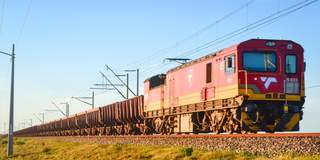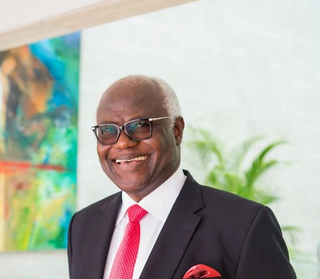News
South Africa: The Sick Man of Regional Railways
The failure of its rail system threatens South Africa’s national economy, with a projected loss of tens of thousands of jobs in mining and agriculture, and severe cuts to tax revenue.


The failure of its rail system threatens South Africa’s national economy, with a projected loss of tens of thousands of jobs in mining and agriculture, and severe cuts to tax revenue. Years of bad policy, neglect of maintenance (a R50 billion backlog in 2023), corruption and incompetence are visibly expressed in severely clogged ports and broken roads.
This toxic cocktail has placed freight rail operator Transnet in a vicious declining circle of falling revenue, rising debt (R130 billion at the last count) and further irrevocable loss of market share.
For more than a century, South Africa had the continent’s biggest and most efficient rail and port network, with more active route kilometres than the rest of sub-Saharan Africa combined. With the advent of democracy in 1994, it was widely assumed that Transnet would be the driver and leader of regional economic growth. Now, much of its notional 21,000km network is idle or derelict, and it can barely run its own trains.
The collapse of Transnet, once the world’s tenth-largest national network, has attracted international interest. “The 21,000km of railways that criss-cross South Africa” reported the UK Financial Times, “once symbolised the nation’s mining might, carrying trains loaded with coal and iron ore destined for India, China and other markets. But the volume of cargo carried by Africa’s biggest rail network has collapsed by a third in the past five years, in a crisis described by President Cyril Ramaphosa as of ‘catastrophic proportions’.”
There is no shortage of visions, policies, plans and solutions – most of which remains trapped in impressive PowerPoint presentations dating back two decades. For instance, Transnet’s own Long Term Planning Framework (LTPF), published in 2017 and packed with graphs and tables, sets out a convincing vision of vastly increased rail volumes. Seven years later, it bears little relationship with reality.
To take just one example, a 68km new coal rail link from Ermelo to Majuba, one of the five biggest power stations in the world, was expected to be completed by December 2017. Its business plan had originally been authorised in December 2004. Now it is expected to be completed by March 2024. Engineering News reported recently that the line was “97.5% complete in 2021; however, as a result of vandalism and damage linked to copper cable theft, the project is now only 87% complete”. There are many such examples of ambitious policies and projects that have been still-born.
The Majuba project is an emblem of what has happened to Transnet’s extensive electrified network. For year criminal syndicates have been stealing the overhead traction equipment wherever it is installed, and then stealing it again after repairs have been done. All over the country, standing trains are robbed by armed gangs and most station buildings have been looted to a state of rubble. Even the rails themselves (weighing around 60kg/metre) are routinely stolen, often in daylight. Such crimes require time, heavy equipment and numerous trained personnel (who evidently have no fear of interruption by law enforcement).
Transnet is short of more than 200 locomotives, a legacy of its corrupt procurement deal with Chinese companies. The Zondo Commission of Enquiry into corruption at state-owned enterprises found that Transnet was the “primary site of State Capture in financial terms” for at least a decade, with tens of billions of rand stolen. Zondo recommended that several senior executives should be prosecuted. The inference can be drawn that these executives were not only guilty of criminality, but also of furthering incompetence and operational drift in the organisation, while driving away honest and skilled employees.
President Cyril Ramaphosa has announced a plan to “enable greater public and private investment” in Transnet. The trouble is that, unlike South Africa’s neighbours, which have all long embraced the concept of railway private-public partnerships, the ANC government still resists anything that hints at privatisation.
“We’ve been clear that South Africa’s port, rail and electricity infrastructure are strategic national assets and will remain in public ownership,” said Ramaphosa. However, it is not clear why strategic industries should in principle remain in state ownership. Sasol, a SOE which pioneered oil-from-coal technology, was fully privatised in 1979 and listed on the Johannesburg Stock Exchange. In 2023 it provides 40% of the petrol needed in the country’s economic engine-room, Gauteng.
Even if public-private partnerships are approved in principle, there is little evidence that Transnet understands how they should work and what investors would need from them.
The danger, for Transnet itself and South Africa’s economy, is that its neighbours are proceeding to make their own arrangements, with plans for new and rehabilitated railways (linking, for example, Namibia, Zambia and the DRC) and for related port expansion (Lobito in Angola, Walvis Bay in Namibia).
Is the sick man of Southern Africa rail now in the hospice, or is there hope for recovery? If it is to be the latter, the South African government and Transnet will have to do very different things, and to do things very differently. A demonstration of political will and of new executive energy are necessary. A convincing statement of intent, far beyond jargon-ridden fancy strategies, is urgently needed before it is too late.
David Williams is a former Deputy Editor of Financial Mail, and Deputy News and Sports Editor at Talk Radio 702. He has written several books on sport (rugby and cricket) and military history. He has also written the discussion paper, ‘“A Melancholy, Long, Withdrawing Roar”: Railways in the Economy of Southern Africa’
Image: jbdodane / flickr



